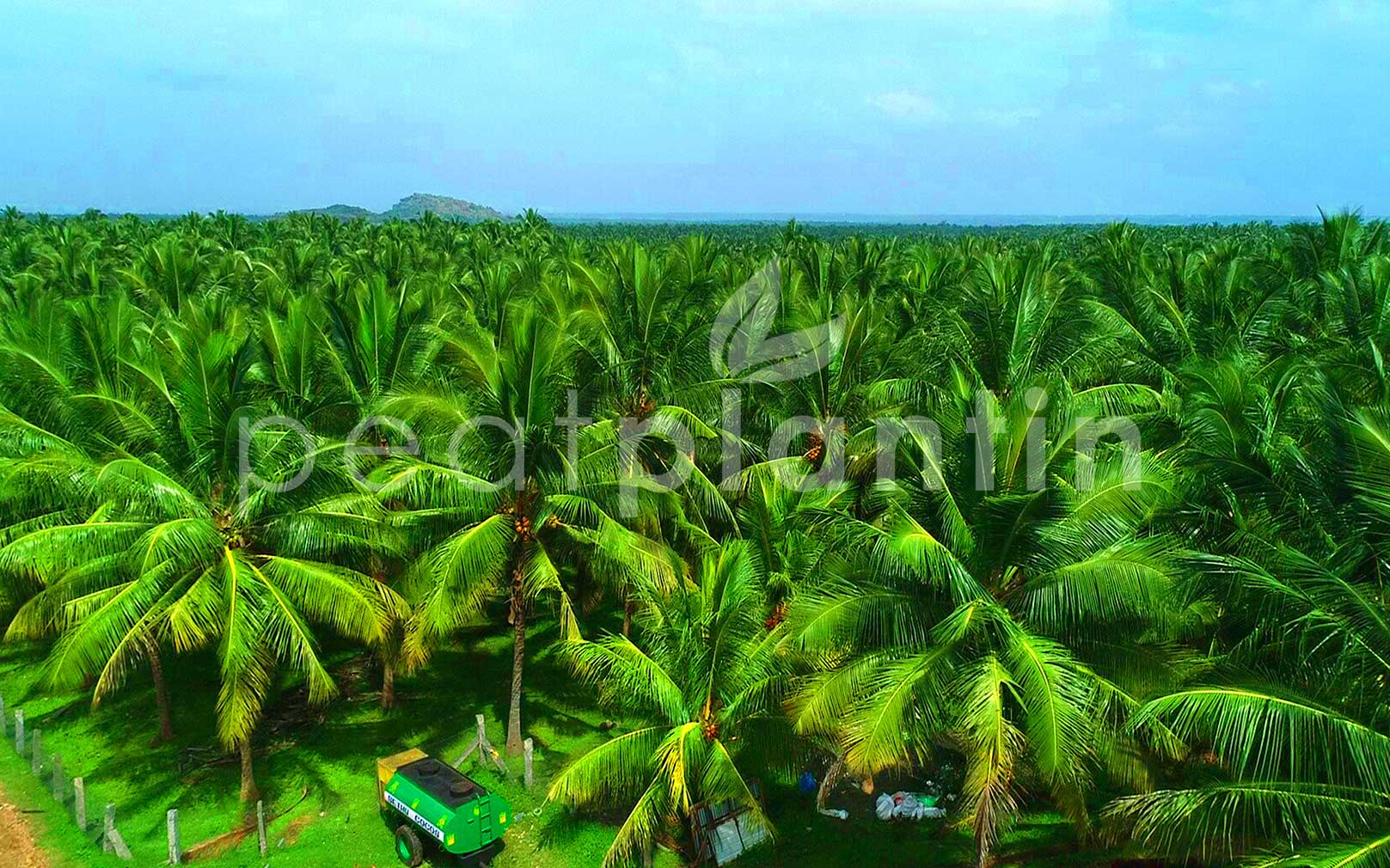
Process #1
From Tree to Soil
At Sri Hari we believe the most precious gift from nature is the coconut tree and its by-products like coir pith and husk chips provide immense possibilities to regenerate soil. Our company focuses on the renewable, restorative and natural properties of coco products. Sri Hari is dedicated in highlighting these benefits in order to help global growers reduce ecological impact. Below, you will find the steps we take to craft nature’s raw materials into our exceptional products.

Process #2
Raw Materials
Our raw materials are sourced from the traditional coconut tree cultivators of our locality. These raw materials are thoroughly checked for quality and only the best enters our warehouse for storing.
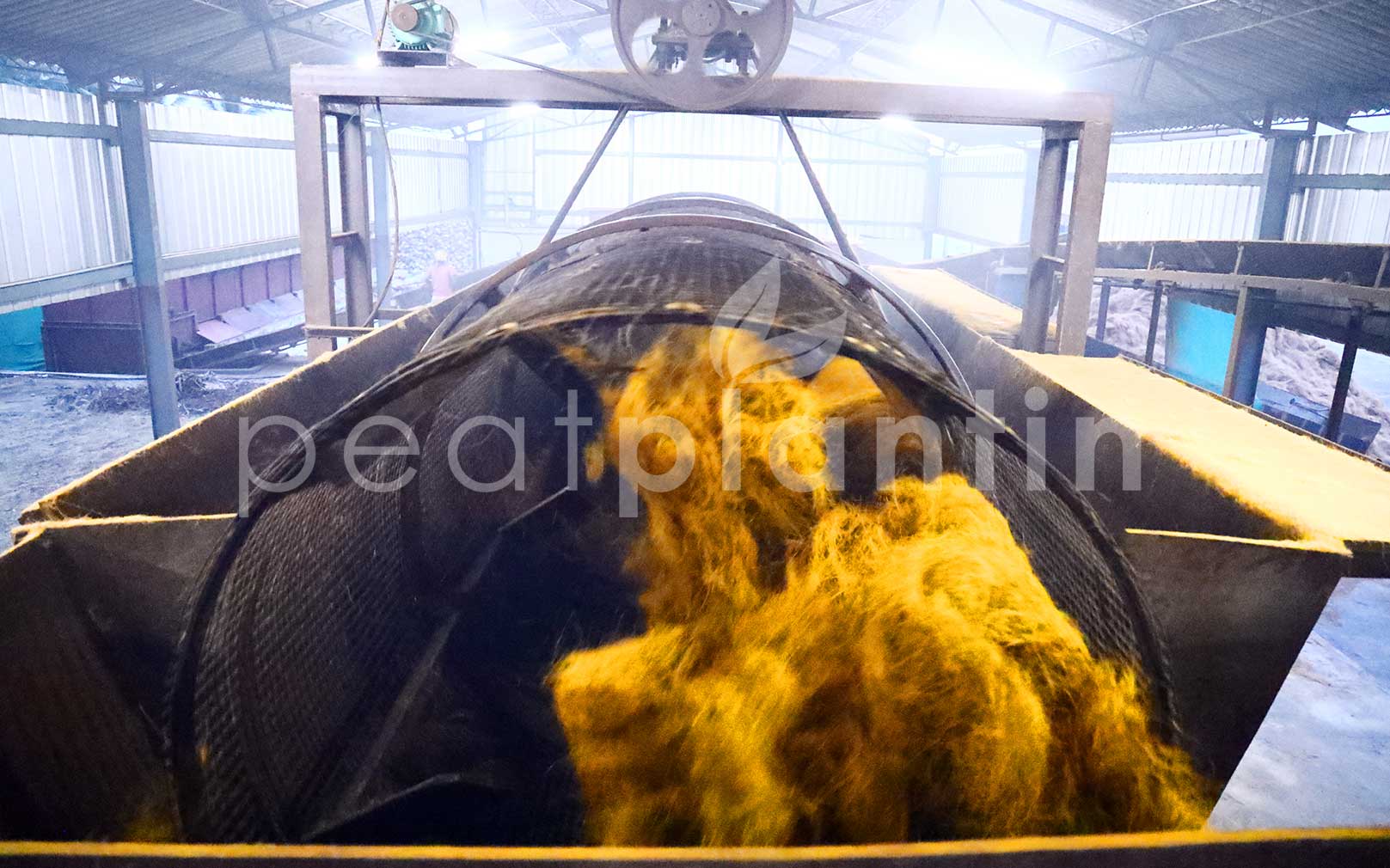
Process #3
Husk Crushing
Our specialized Coir Beater machine is where the raw coconut husks are broken down and the fibre is extracted using a beating principle.
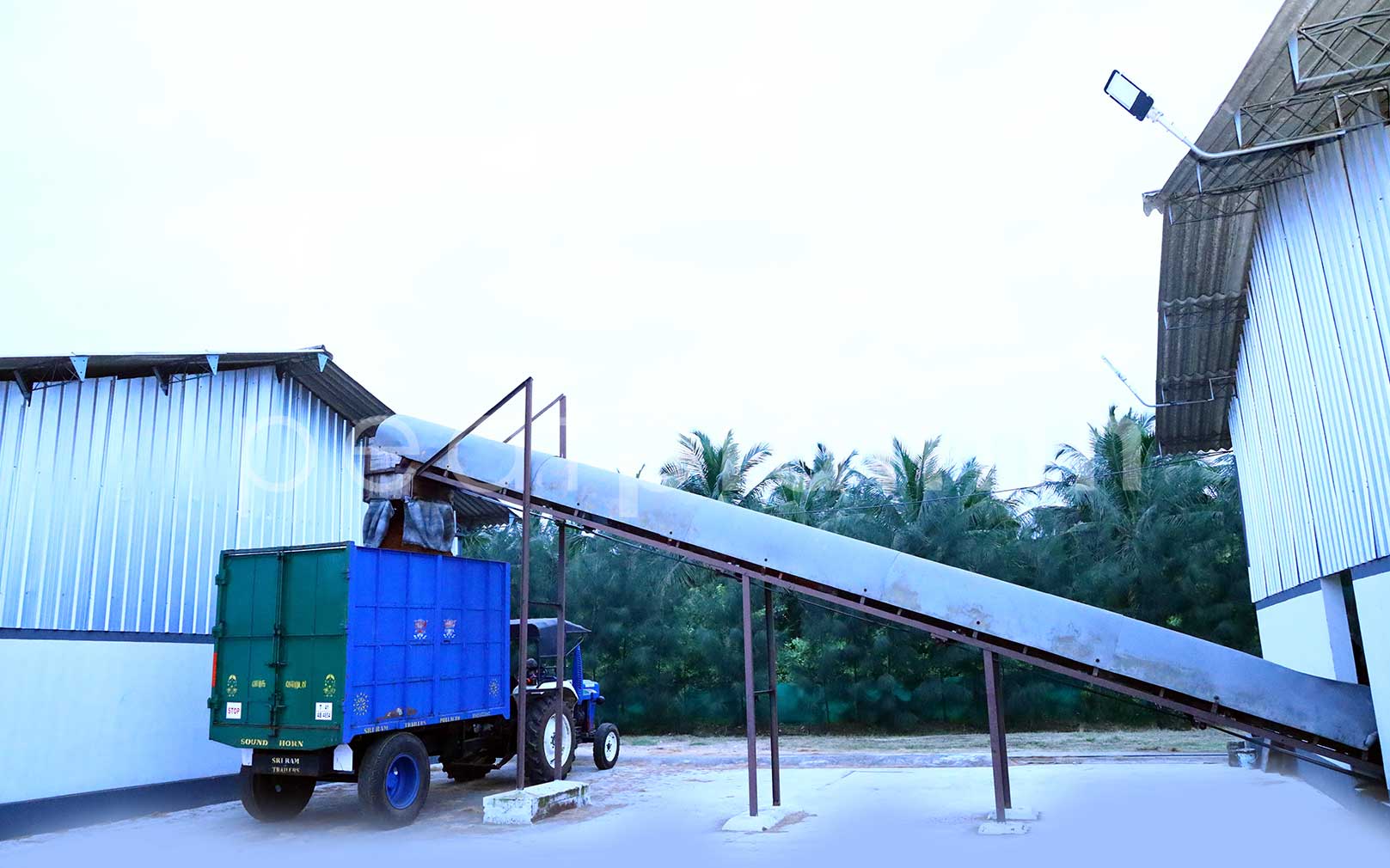
Process #4
Coir Pith Extraction
The Coir Beater takes the coconut husk pieces and separates the pith from the fibre. The machine’s outlet conveyor then extracts fresh coconut pith.
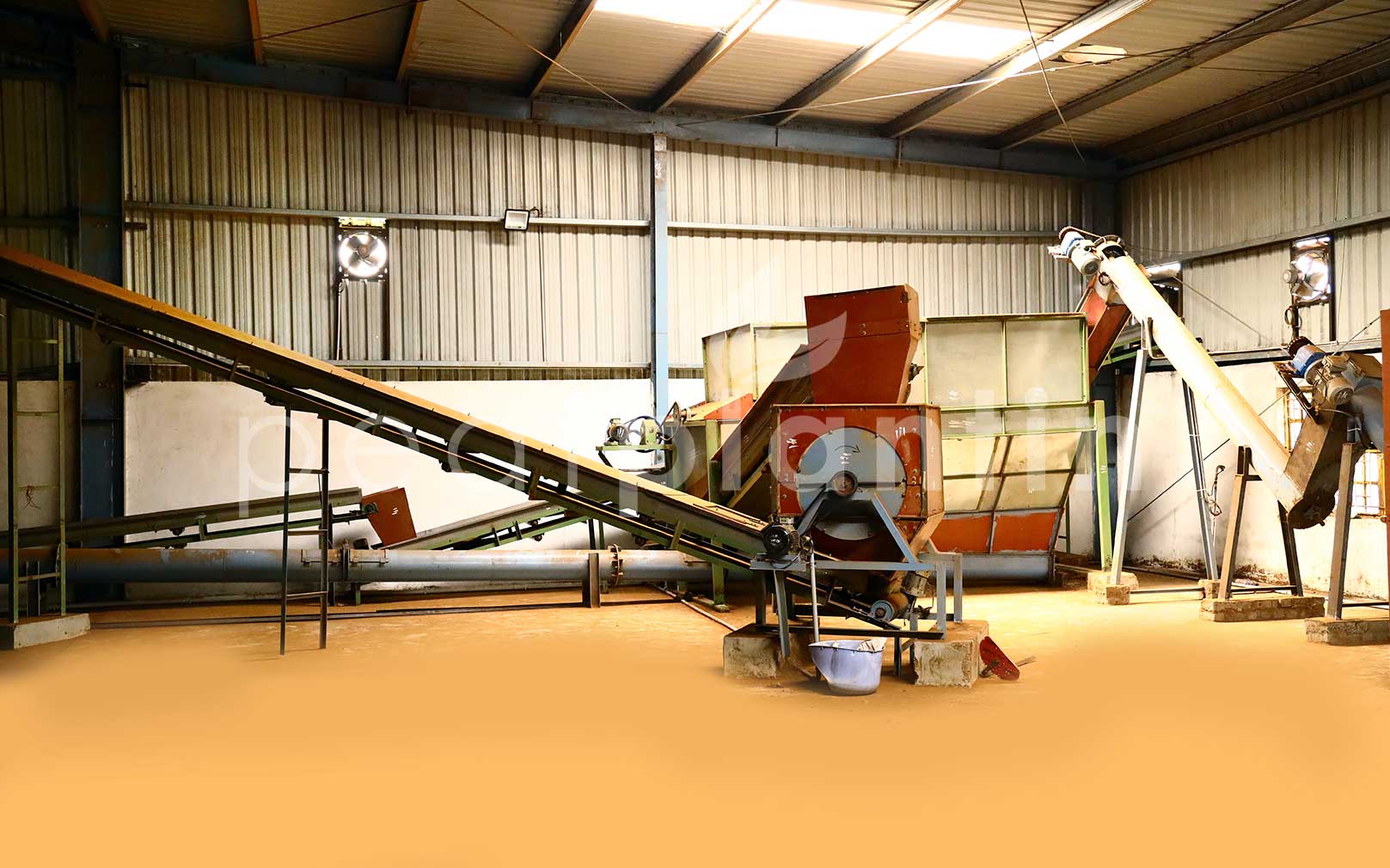
Process #5
Screening Process
The extracted pith passes through the screener and it is tested by our experienced staff to ensure only the highest quality move onto the manufacturing process.

Process #6
Washing & Drying
Our washing bunkers are used to reduce the default salt contents of the coir pith and extra washed to remove the excess elements. We wash the materials with clean water to reach accurate EC and pH values as per RHP standards. The washed pith is then naturally sun-dried in our large cement yards until the moisture level comes to less than 15%. We do not use any other artificial method for drying coco peat. This dried coco peat is collected in PP bags and stored for further processing.

Process #7
Sieving
The dried coco peat collected in PP bags are fed into 6 mm rotary screener machine. This screener machine sieves the coco peat and removes fibre, small stones and other impurities of above 6 mm size. This sieved coco peat is then fed into another 1 mm rotary screener machine. This removes all the fine particles present in the coco peat. These fine particles reduce the absorption capacity of the coco peat

Process #8
Sand Removing
The sieved coco peat is then fed into special machine called De-stoner. This machine removes all the tiny stones, sand and any other impurities with less than 6 mm size.

Process #9
Compressing Process
Once the pith is dried, it is taken from the drying yards and fed into the compressing machines. In order to achieve highest efficiency for our growers, the dried materials are compressed as 5kg blocks.

Process #10
Quality Checking
The compressed blocks then go through an intensive checking process. Our quality control team helps us deliver our very best to you by ensuring our products are free from impurities like weeds, stones, sand, and pathogens.
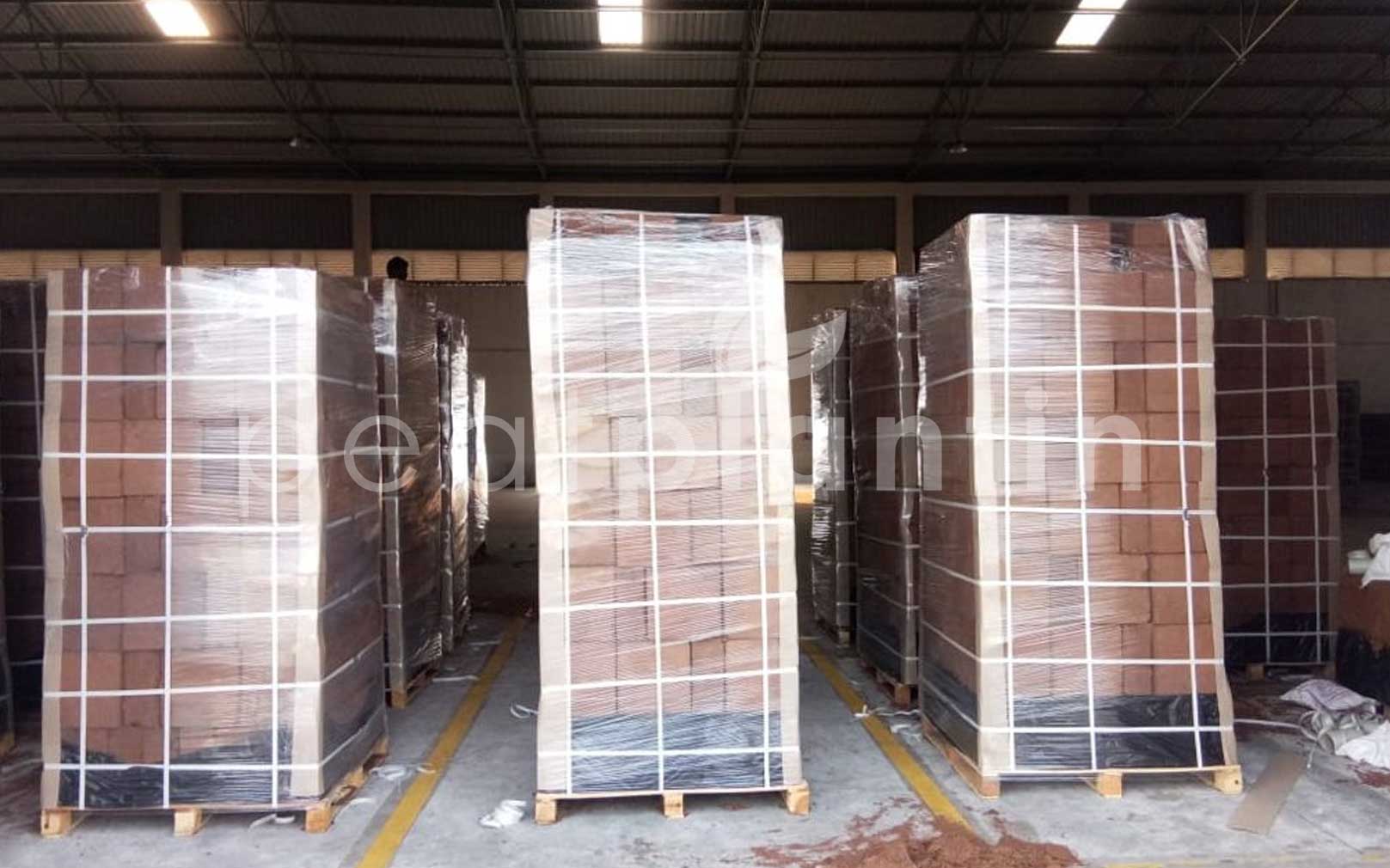
Process #11
Packing
The compressed blocks are then packed into UV bags that are carefully arranged in disinfected wooden pallets to maintain hygiene levels. We use 40-foot high-cube containers or dry vans for transportation of our packaged products.